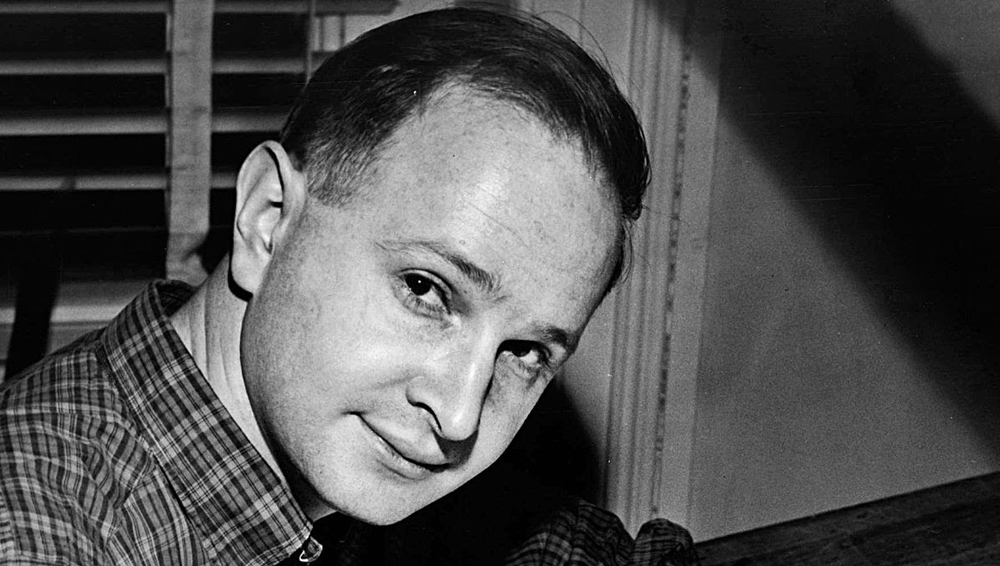(1913–2010), Yiddish poet. Born in Smorgon’, a small industrial city southeast of Vilna, Avrom Sutzkever spent his early childhood in Omsk, Siberia, where his parents took refuge from the invading German armies during World War I. Following the death of his father, Sutzkever’s mother, Rayne, resettled the family in Vilna in 1921. Sutzkever attended local heders and the Polish Jewish high school Herzliah, audited university classes in Polish literature, and was introduced by a friend to Russian poetry. His earliest poems were written in Hebrew.
Sutzkever published his first piece in the magazine of the Jewish scouting organization, Bin. In 1933, he became part of the writers’ and artists’ group Yung-Vilne, along with fellow poets Shmerke Kaczerginski, Chaim Grade, and Leyzer Volf. He also moved to Warsaw that year. His maiden volume, Lider (Poems), was published by the Yiddish PEN Club (1937); a second, Valdiks (Of the Forest; 1940), during the interval of Lithuanian autonomy.
After the German invasion in June 1941, Sutzkever and his wife, Freydke, whom he had married in 1939, were herded into the ghetto with other Vilna Jews. Under cover of forced labor, Sutzkever smuggled arms into the ghetto and concealed rare Jewish books and manuscripts from the YIVO collection, which he unearthed after the war. Writing poetry under aggravated conditions, he described several brushes with death, the murders of his mother and his newborn son, the cultural and underground resistance, and ghetto events and personalities. His long poem “Dos keyver-kind” (The Grave Child) was awarded a literary prize by the Ghetto Writers Union in 1942, and his poem “Unter dayne vayse shtern” (Beneath the Whiteness of Your Stars) was set to music by Avreml Brudno. The Sutzkevers escaped in September 1943 with a unit of the Federated Partisan Organization (FPO) and joined a Jewish partisan group under Soviet command in the Naroch forest.
Admiration for his poems smuggled from the ghetto by a Lithuanian courier prompted the Jewish Anti-Fascist Committee in the USSR to airlift Sutzkever to Moscow, where he served as a witness-survivor of the destruction of Polish Jewry. He became a member of the Jewish Anti-Fascist Committee and participated in its April 1944 rally. Ilya Ehrenburg’s profile of the poet in Pravda (29 April 1944) was one of the first official Soviet notices of the Holocaust. In Moscow, Sutzkever participated in the work of Ehrenburg’s literary commission for the preparation of the Black Book. He also wrote a prose account titled Fun vilner geto (Of the Vilna Ghetto), parts of an ode of parting called “Tsu Poyln” (To Poland), and much of Geheymshtot (Secret City), an epic poem chronicling the attempt of 10 Jews to survive destruction in the sewers of Vilna.
Sutzkever befriended members of the Soviet Yiddish intelligentsia and testified on behalf of Russian Jewry at the Nuremberg Trials. With a newborn daughter, Rina, the Sutzkevers returned to Poland in 1946, then on to Paris and Palestine in 1947. In Tel Aviv, he founded the literary quarterly Di goldene keyt (The Golden Chain), remaining its editor until its closing in 1995.
Sutzkever’s postwar poetry and editorial influence are credited with stimulating a revival of Yiddish creativity in Israel and beyond. His poetry transposes the “bones of Joseph” from Europe to the Land of Israel: the poet responds to the natural landscape of his new surroundings, simultaneously becoming the repository of Jewish longing. Contrary to the intimacy of most of his verse, Sutzkever also assumed a public role, bringing to far-flung Jewish communities the message that Yiddish language and culture would continue to thrive. A trip to South Africa inspired the poetic cycle Helfandn bay nakht (Elephants at Night; 1955), which combines images of Africa with themes of Europe. The two-volume Poetishe verk (Collected Poems; 1963), culled from twelve books of poems, was followed by eight additional books of poetry and three of poetic stories that “stretch the art of Yiddish storytelling to unsettling limits” (David G. Roskies, A Bridge of Longing: The Yiddish Art of Storytelling, 1995, pp. 318–319).
In his earliest works, Sutzkever fashioned his childhood into a poetic myth of origins in which a new Siberian “Abraham” discovers his affinity with the creative forces of nature. While not explicitly religious, the poet claims, “In everything, I come upon a splinter / of infinity” (1938). Though he was mistrusted by local critics before the war because he seemed not to write with a sense of social urgency, Sutzkever’s insistence on the immutable power of poetry proved invaluable in the ghetto as a means of expressing the transcendent essence of temporal events. The dead mother assures her son, “If you remain / I will still be alive / as the pit of the plum / contains in itself the tree / the nest and the bird / and all else besides” (“Mayn mame” [My Mother]; 1942). Poetry thus assumes the task of preserving the entire culture that went into its creation. Of Sutzkever’s wartime virtuosity, fellow poet Jacob Glatstein wrote, “A sadistic impulse of fate had ordered the slave of perfection to give form to the bloodiest chaos of all times” (In tokh genumen; 1947).
Sutzkever emerged as a “national poet,” addressing large historical subjects in works of epic scale while creating deeply personal, sometimes idiosyncratic, contemplative verse. The series Lider fun togbukh (Poems from a Diary; 1974–1981), which is considered his masterpiece, fuses philosophical reflection, autobiography, and observation into a modern Psalter. Through formal elegance and masterful rhyming, it conveys his image of an organic universe that reintegrates what history has torn apart, including those murdered in Europe from those who carry their memory. Sutzkever’s works have been translated into English, Swedish, French, Hebrew, Polish, and other languages. Benjamin Harshav ranks him as “one of the great poets of the twentieth century” (Harshav, 1991, p. 3).
Suggested Reading
Benjamin Harshav, A. Sutzkever: Selected Poetry and Prose (Berkeley, 1991); Abraham Nowersztern, Avrom Sutskever-bibliografye (Tel Aviv, 1976); Abraham Nowersztern, Avraham Sutskever bi-melot lo shiv‘im / Avrom Sutskever tsum vern a ben-shivim (Jerusalem, 1983), in Yiddish and Hebrew; Ruth Wisse, “The Ghetto Poems of Abraham Sutzkever,” Jewish Book Annual 36 (1978–1979): 26–36, reprinted in Jewish Book Annual 54 (1996–1997): 95–106.





Leave a Reply